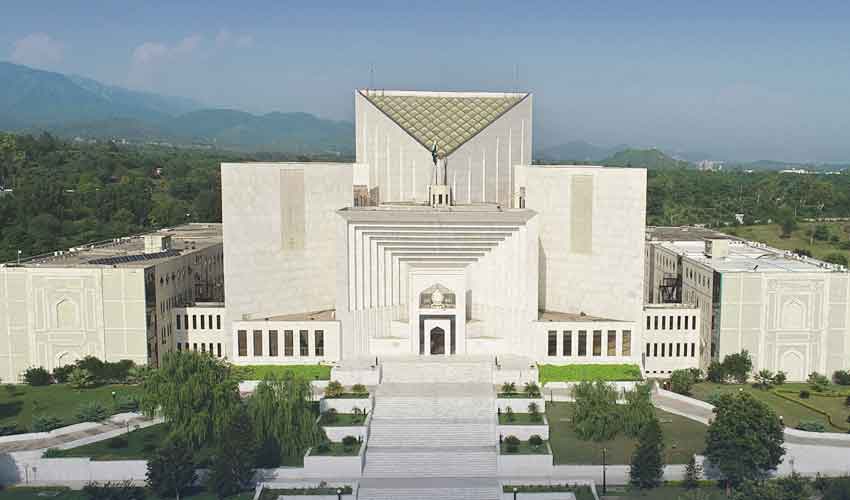Former chief justice of Pakistan (CJP) Jawwad S Khawaja has filed a petition in the Supreme Court, requesting the postponement of hearings on appeals against the nullification of trials of civilians in military courts.
The petition seeks adjournment of the hearing till a decision on the 26th Constitutional Amendment case. It argues that a decision on the 26th Constitutional Amendment is vital before proceeding with the appeals regarding military courts.
The petitioner contends that the constitutional bench of the Supreme Court was formed under the Judicial Commission, which itself came into existence as a result of the constitutional amendment. If the amendment is deemed null and void, the actions of the Judicial Commission, including the current bench, could also be invalidated.
The former CJP's petition also cites a letter from Justice Mansoor Ali Shah to emphasize the importance of resolving the constitutional issue before addressing the military court appeals.
Also Read: Justice Mansoor urges CJP to follow rules for convening judicial commission huddle
The appeals in question pertain to the trial of civilians in military courts.
In a letter dated Dec 4, Justice Mansoor Ali Shah formally requested Chief Justice of Pakistan Yahya Afridi, who is also the chairperson of the Judicial Commission of Pakistan, to postpone the meeting of the Judicial Commission scheduled for December 6, 2024.
The meeting was to consider nominations for the appointment of additional judges to the high courts of Sindh and Peshawar.
In his letter, Justice Shah raised several constitutional concerns that necessitated the postponement. He highlighted that the legitimacy of the 26th Constitutional Amendment, which restructured the Judicial Commission, is still under challenge in the Supreme Court.
It said that over a dozen petitions against the amendment were pending, and a ruling against its validity would render any actions taken by the reconstituted commission, including the nominations/appointments of additional judges in various high courts, null and void.
Justice Shah stressed that proceeding with the appointments before the resolution of these petitions could undermine public confidence in the judiciary and waste resources.



























